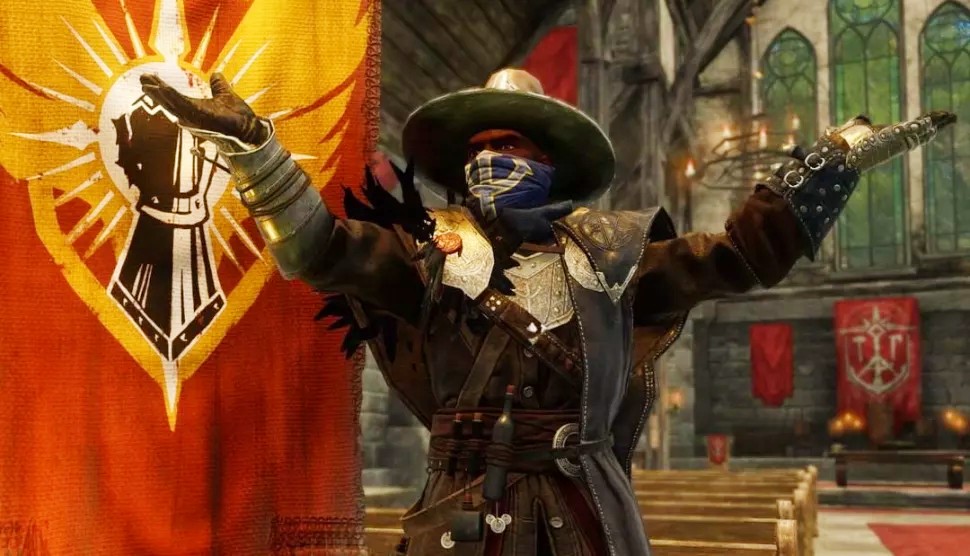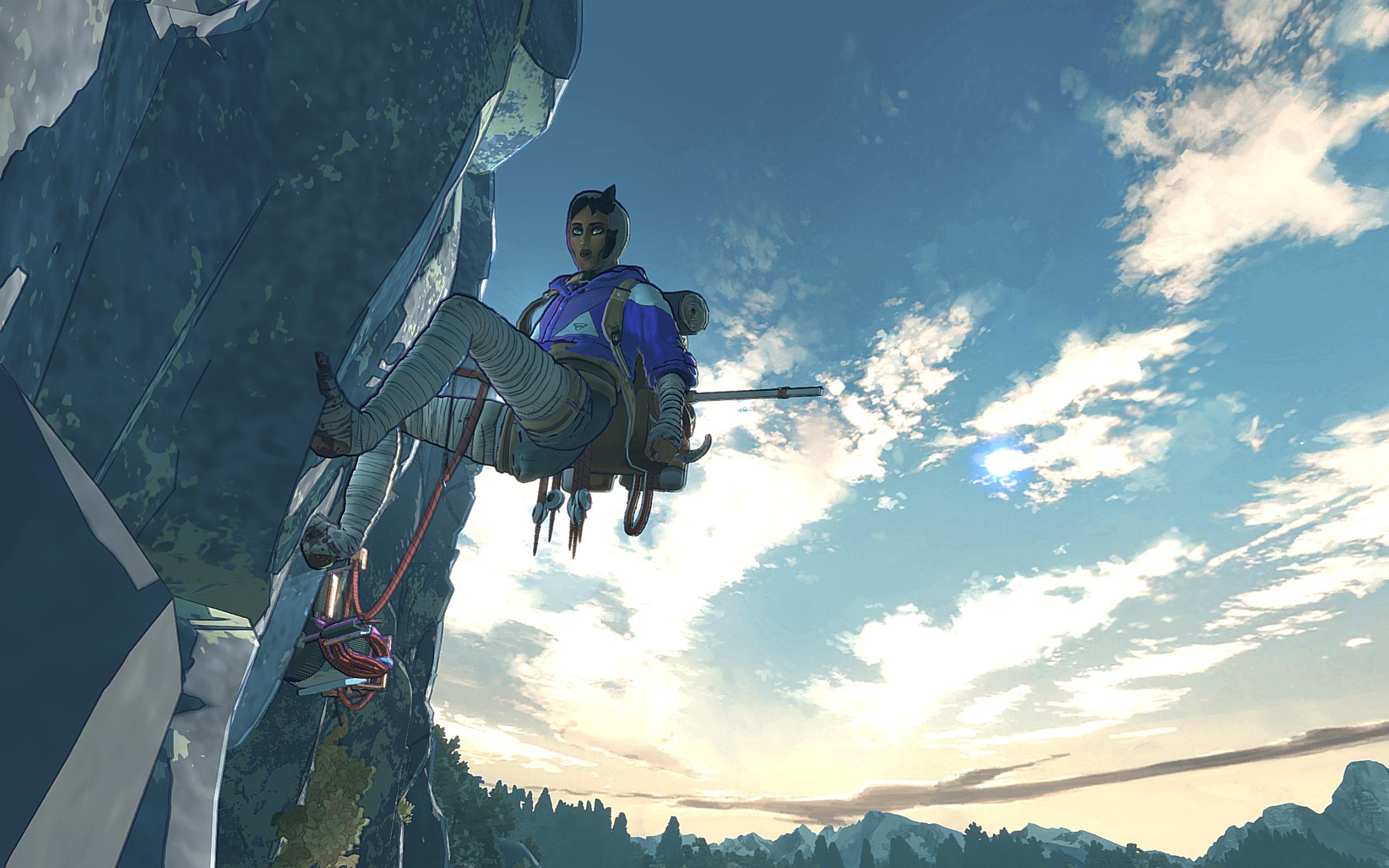As Amazon's game business crumbles, the public is surprised to discover that it was trying to compete with Steam all this time
If you're wondering how it all went so wrong, former VP Ethan Evans might be able to shed some light on things.

September 30, 2016 was a big day for Amazon Game Studios: It was on that day, at TwitchCon, it unveiled Breakaway, Crucible, and New World, signalling a major push into the realm of big-budget game development. Not quite a decade later, we find ourselves standing amidst the rubble of that once-great ambition, with a single question on our minds: What the hell went wrong?
Because things very definitely did go wrong. First, Amazon halted development of Breakaway in 2018 after some iffy previews and an open alpha that failed to impress. It followed that up by not halting development of Crucible, even though it probably should have given that Crucible ended up being 'un-released' just a month after it went live and was ultimately canned outright.
And yesterday, it nailed the trifecta: New World, despite appearing to be at least a moderate success (which makes it a big success by Amazon standards) was brought to an end: Amazon said the game will continue to run until at least the end of 2026 (although it also said New World would remain available for purchase, a commitment that held up for about 12 hours) but active development is over.
Various other whiffs have been interspersed throughout—failed games, forgotten game stores, that sort of thing—but for me, the fates of those three games really encapsulate Amazon's gaming misadventure: Big talk, half-assed execution, ugly endings, all of it leading to yesterday's announcement of major layoffs at Amazon Games.
Of course there's no single answer to the question of what the hell went wrong, because obviously a lot of things did. But the end of New World, and seemingly of Amazon's gaming ambitions as a whole, bring to mind what former Prime Gaming vice president Ethan Evans had to say about it earlier this year—essentially, that hubris and money are a dangerous combination.
Amazon's overarching goal, according to a LinkedIn post we reported on in February, was to "disrupt the game platform Steam." No problemo, right? As Evans wrote on LinkedIn, "We were at least 250x bigger [than Steam]," and that's a pretty good starting point.
Ah, but problemo indeed. "The 15+ year long attempt to challenge Steam started before I was VP of Prime Gaming, but we never cracked the code," Evans wrote. "Not under my leadership or anyone else's."
Keep up to date with the most important stories and the best deals, as picked by the PC Gamer team.
Twitch tried to break into the digital marketplace via acquisition, and failed; then it tried to build its own storefront into Twitch, which was also a bust. Then it built the cloud gaming service Luna, which went largely unnoticed. Steam, meanwhile, continued its uncontested dominance of PC gaming, ably guided by Gabe Newell and a potato.
"At Amazon, we assumed that size and visibility would be enough to attract customers, but we underestimated the power of existing user habits," Evans admitted in his February LinkedIn post. "We never validated our core assumptions before investing heavily in solutions. The truth is that gamers already had the solution to their problems, and they weren't going to switch platforms just because a new one was available.
"We needed to build something dramatically better, but we failed to do so. And we needed to validate our assumptions about our customers before starting to build. But we never really did that either. Just because you are big enough to build something doesn't mean people will use it."
The extent of Amazon's failure to crack the Steam nut is revealed in the fact that not only did it fail to compete, but lots of people didn't even know it was trying in the first place. That's, uhh, really not a good sign.
Today I learned amazon had a platform competing against Steam. lol
— @3mbg.bsky.social (@3mbg.bsky.social.bsky.social) 2025-10-29T19:21:13.716Z
Amazon: "you took everything from me" Steam:
— @bearpigman.bsky.social (@bearpigman.bsky.social.bsky.social) 2025-10-29T19:21:13.771Z
Amazon was OFFICIALLY competing against Steam this whole time?
— @sliwinski.bsky.social (@sliwinski.bsky.social.bsky.social) 2025-10-29T19:21:13.744Z
I’ve had steam since it was a thing, and this is quite literally the first time I’ve heard they have a game store Like I knew about New World or whatever their MMORPG was but that’s it.
— @richs.bsky.social (@richs.bsky.social.bsky.social) 2025-10-29T19:21:13.688Z
Amazon isn't giving up on games entirely, but it's shifting focus away from major productions like New World to stuff like the AI-powered Snoop Dogg game where he's a judge. I'm sure that'll work out much better.

Andy has been gaming on PCs from the very beginning, starting as a youngster with text adventures and primitive action games on a cassette-based TRS80. From there he graduated to the glory days of Sierra Online adventures and Microprose sims, ran a local BBS, learned how to build PCs, and developed a longstanding love of RPGs, immersive sims, and shooters. He began writing videogame news in 2007 for The Escapist and somehow managed to avoid getting fired until 2014, when he joined the storied ranks of PC Gamer. He covers all aspects of the industry, from new game announcements and patch notes to legal disputes, Twitch beefs, esports, and Henry Cavill. Lots of Henry Cavill.
You must confirm your public display name before commenting
Please logout and then login again, you will then be prompted to enter your display name.



